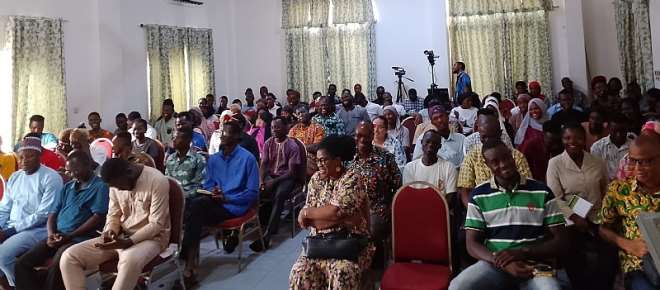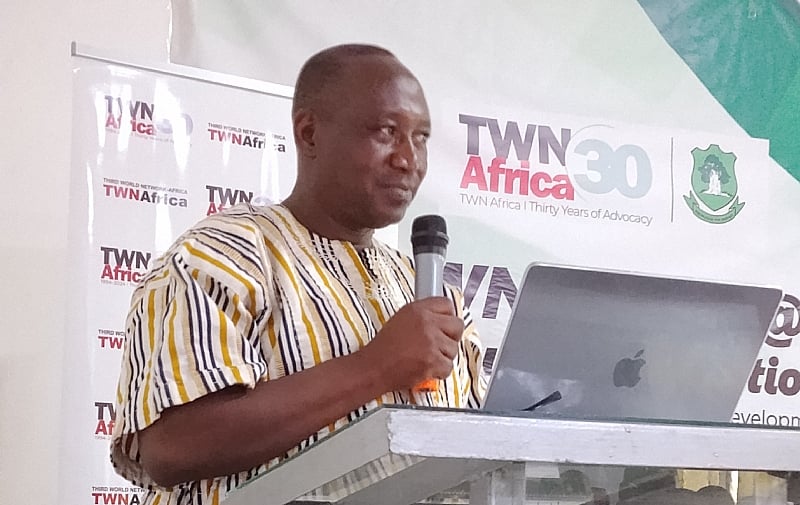The Faculty of Communication and Media Studies (FCMS) of the University for Development Studies (UDS) has hosted a public lecture, calling for a national consensus on the responsible extraction of Ghana’s natural resources to support sustainable economic development.
The lecture emphasized the need for a well-developed policy that prioritizes refining raw materials within Ghana and considers the welfare of communities affected by mining. Such a policy, speakers argued, would allow Ghana to harness its mineral wealth while preserving forest reserves and avoiding environmental degradation.
Delivering the keynote address, Dean of the Faculty, Prof. Jasper Abembia Ayelazuno, stressed the urgency of declaring a state of environmental emergency to curb the destruction caused by illegal mining activities, which he warned poses an existential threat to food security.
“There is the need for policy implementation to ensure that those entrusted with the resources make good use of them to benefit the nation rather than individuals. This would go a long way to enable the country to become independent and reduce overreliance on foreign aid,” he said.
Prof. Ayelazuno also highlighted the plight of women in mining communities, noting that their livelihoods—such as collecting firewood, snails, and shea nuts—have been disrupted by illegal mining. “Most women especially go to the forest to pick snails, shea nuts, firewood, among others, for domestic and commercial purposes, but the mining companies have taken over those lands, leaving them without access,” he lamented. He added that men in these communities have also expressed concern about the destruction of ancestral lands.
He criticized the continued export of unrefined minerals—what he described as “dirty gold”—saying it offers little economic transformation for the country. “The affected communities are denied their fair share, and the export of raw minerals will never transform Ghana’s economy,” he said.
The event, chaired by Mr. Coleman Ageyomah, was organized by FCMS in collaboration with Third World Network (TWN)-Africa under the theme: “Ghana’s Economic Transformation and the Role of Extractives: Putting the Community at the Center of Ghana’s Transformation.”
The public lecture formed part of TWN-Africa’s 30th anniversary campus conversation series, which advocates for the effective use of Africa’s natural resources for development. It brought together students, faculty, policymakers, civil society actors, and industry players to discuss ways to responsibly harness extractive resources for sustainable national growth.
Speaking at the event, Mr. Francis Yenbila, a leader of the Mining Watch Group in Nabdam, attributed the destruction of smallholder farms to the ineffective implementation of environmental and mining by-laws in the area.
Programmes Officer at TWN-Africa, Ms. Pauline Vande-Pallen, expressed confidence in Ghana’s ability to manage its resources. “If the regulations are working well, many of the issues we have been seeing would not happen. The laws must be made to work,” she emphasized.
She added that the engagement was also meant to educate students and faculty on how extractive resources can be harnessed responsibly. “When extraction happens within the perimeter of a community and affects its people significantly, those community concerns must become part of the national conversation,” she stated.
Ms. Vande-Pallen stressed that with proper certification and regulation, mining can contribute positively to Ghana’s development without destroying the livelihoods of local communities.



